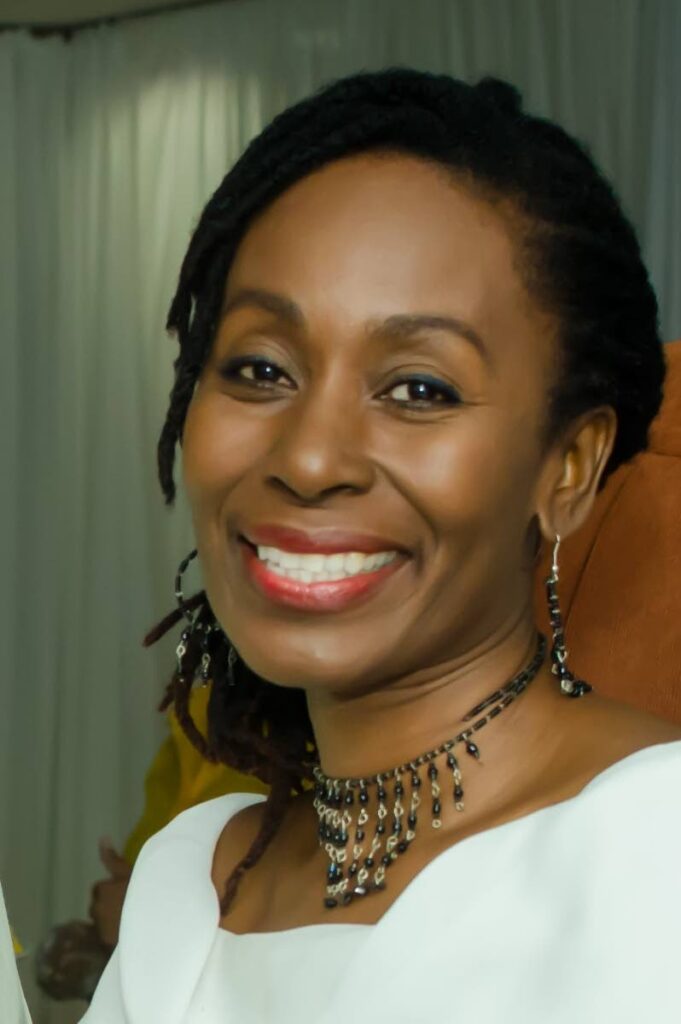Message in the canerows

Culture Matters
Dara E Healy
Stop! Stop!
You mocking pretender.
Stop right there and know what is fear.
The reason for my sudden appearance
In this present community
Is a matter of great public urgency
– Midnight robber speech
I WANTED to wait. Remove the emotion, anger and disappointment. My stomach turned at the photo of the young men lined up against the wall.
Not this again. When will we acknowledge that we have a problem with racism and begin addressing it in realistic ways? After Black Power, Black Lives Matter and “I can’t breathe,” why is it still so hard for us to admit that many of our rules no longer serve their intended purpose?
A large part of the challenge is that in the Caribbean, racism manifests primarily along colour and class lines. For instance, the leaders of Caricom look like us. Intelligent and accomplished, they navigate the world with style, for the most part.
Yet the effects of our collective pain linger below this shiny surface. Darkie, reds, white boy or other, more damaging racist words are common. It is not by chance that we are convinced of the superiority of lighter skin (75 per cent white or 98 per cent white?), good hair and thin female bodies.
As our leaders discuss ways to make the Caribbean function better for its people, we must address the reality that many of us do not feel we are entitled to share in the wealth of the region or that we truly belong.
In South Africa during apartheid (it means apartness) there was a rule, a law, about the carrying of passes that applied mainly to black South Africans.
Every year on March 21, the world commemorates International Day for the Elimination of Discrimination in memory of the 1960 Sharpeville Massacre, when police fired into a crowd of peaceful, singing protesters.
December 5, 1955. Four days after Rosa Parks was arrested for refusing to yield her seat in the "coloured" section of a bus to a white person, 40,000 African Americans in Montgomery, Alabama, boycotted the bus service. They rejected the rules that required black people to eat, travel or use the bathroom in a different place from white Americans.
Interestingly, mobilisation for the protest action was largely achieved through announcements by church ministers.
My grandmother resented the introduction of musical instruments other than the organ at church. She bristled at the drumming and high-energy singing. For her and many in her generation, church music was Gregorian, popularised in Europe somewhere in the eighth or ninth century.
Thankfully, the young people, supported by progressive priests, ensured that our church remained responsive to societal shifts, characteristic of the evolution of many global belief systems.
This notion of relevance is key to the debate over young people of African heritage and their hairstyles. So much was severed from the African; why continue to hide behind archaic rules and ideas of conformity to take away even more? Do we not understand the long-term impact of constantly targeting the self-expression of young people?
Conversation is important, but action is urgently needed. We are a region populated largely by people of colour, but many with Rastafarian hairstyles are still told to cut their hair to access work. In TT, it is understood that certain addresses can harm your chances of employment.
And what about so-called prestige schools? Perhaps these are where neocolonial values thrive best. Talk to me about children who are ridiculed for speaking patois or pressured to adopt western rules of beauty, dress and speech.
We are relieved that SEA results have improved, but it is imperative that we develop schools as safe spaces, where acceptance, kindness and appreciation are the norm. We must also introduce sensitivity training for educators, business leaders and politicians. The way we speak to and about each other only inhibits our nation-building aspirations.
Rules are necessary for stability and to keep us safe. They even help some to make sense of the world. But there comes a time when we can no longer hide behind rules, nor should we perpetuate a system that belittles the dignity of others.
So who will champion the change?
Young people everywhere are already proclaiming their humanity. If rules serve to oppress us, then we will not obey them. It is human nature. We will dismantle them, one canerow at a time.
I stand with the young people. Hair is my resistance.
Dara E Healy is a performance artist and founder of the Indigenous Creative Arts Network – ICAN


Comments
"Message in the canerows"